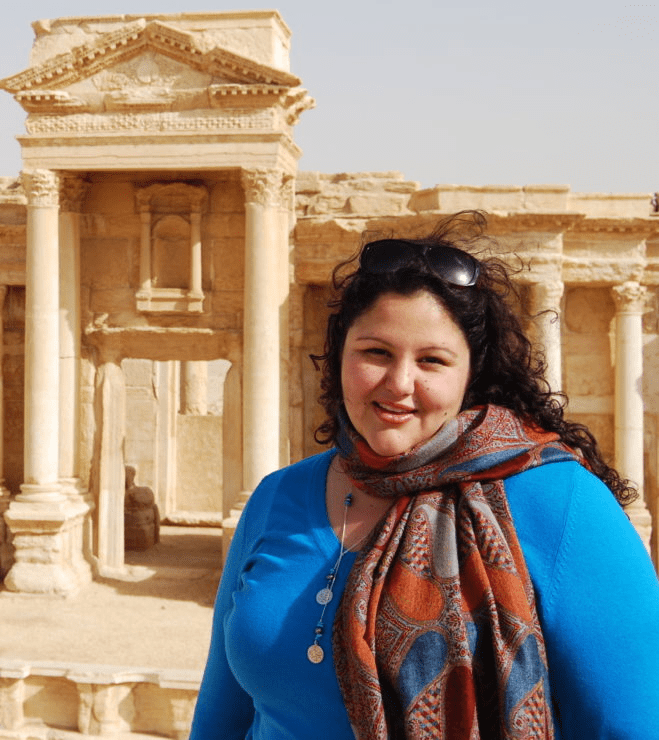Natural Disasters and Climate Change
in the MENA Region
September 18, 2024
Summary
A year after the floods that struck the Libyan city of Derna and the earthquake in Morocco’s Al Haouz province, the MENA region continues to grapple with increasing environmental and political challenges. Reconstruction efforts are ongoing in Türkiye and Syria, which were also hit with a magnitude 7.8 earthquake in February 2023, causing over 60,000 deaths and $150 billion in damages. As the MENA region grapples with increasing environmental challenges, understanding the impact of these disasters is more important than ever.
The Middle East Council on Global Affairs hosted a webinar to address the increasing frequency and intensity of natural disasters in the MENA region, which are exacerbated by climate change. Scholars and experts convened to discuss the challenges that climate-induced events pose to the region’s communities, economies, and infrastructure, emphasizing the urgent need for climate resilience and coordinated policy action. The session covered the effects of climate change, public opinion on environmental challenges, the roles of governments and civil society, and the potential for innovative solutions and international cooperation to mitigate future risks.
Moderator: Yasmina Abouzzohour
Salma Al-Shami, Director of Research, Arab Barometer
- Al Shami presented insightful findings from the Arab Barometer, which has conducted extensive surveys to gauge public opinion across the MENA region regarding climate change and government response.
- The surveys revealed that public trust in government institutions is evolving, particularly in the wake of recent natural disasters. For instance, in Morocco, 43% of respondents felt the government effectively managed the recent earthquake response, while 31% felt the government exceeded expectations. These statistics illustrate a burgeoning confidence in civil society organizations and the role they play in disaster response and recovery.
- She discussed how public perception shapes government accountability and policy responses. There is a growing recognition that citizens expect their governments to prioritize climate action and disaster preparedness.
- However, the survey findings also indicated that climate change often ranks lower on the public agenda compared to immediate concerns such as economic stability and governance. This prioritization presents a challenge for policymakers who must navigate public sentiment while addressing urgent climate issues.
Ahmet F. Aysan, Nonresident Senior Fellow
- Aysan examined the economic implications of natural disasters in the MENA region. He highlighted the role of central banks and financial institutions in mitigating risks associated with climate change. Aysan introduced the concept of a climate uncertainty index, which assesses the volatility and unpredictability surrounding climate policies, particularly in the Global South, including the MENA region.
- He argued that financial institutions should take a proactive stance in international negotiations and disaster recovery efforts. The establishment of a global disaster fund or insurance system could provide crucial resources for countries impacted by climate-induced disasters, enabling them to recover and rebuild more effectively.
- Aysan also emphasized the importance of public engagement in climate action. He and other panelists noted that recent natural disasters have heightened citizens’ awareness of climate issues, creating an opportunity for governments to reinforce their commitment to climate action. With this shift in public consciousness, there is an increasing demand for transparency and accountability in government responses, particularly regarding the allocation of resources for disaster relief and climate adaptation efforts.
- Governments need to communicate effectively with their constituents about the steps being taken to address climate change and disaster preparedness. Building trust through open communication channels can enhance public support for climate policies and foster a culture of resilience within communities.
Malak Altaeb, Independent consultant on environmental policy
- Altaeb pointed out that climate change is increasingly recognized as a significant risk multiplier for the MENA region. The recent catastrophic flooding, particularly exemplified by Storm Daniel in Libya, serves as a vivid illustration of how climatic shifts exacerbate existing vulnerabilities.
- With rising temperatures and erratic weather patterns, countries in the region must confront the reality of intensified natural disasters, which disproportionately affect the most vulnerable populations.
- For post-disaster reconstruction efforts, Altaeb emphasized the importance of integrating climate resilience into rebuilding strategies. The catastrophic floods in Libya serve as a poignant reminder of the need for sustainable infrastructure development that accounts for future climate risks. The discussions pointed out that rebuilding efforts should prioritize climate-resilient infrastructure to mitigate the impacts of future disasters.
- A critical aspect of effective reconstruction involves learning from past experiences and adapting strategies based on local vulnerabilities. She urged that incorporating climate resilience into reconstruction plans is essential for ensuring the long-term sustainability of communities affected by natural disasters.
- Altaeb also reflected on the broader implications of climate change and natural disasters for the MENA region. The frequency of these events calls for enhanced regional cooperation and collaborative responses to shared challenges. The importance of unity among MENA countries, as well as cooperation with international partners, was emphasized as vital for effective disaster management and climate adaptation.
The webinar concluded with a Q&A session, where speakers emphasized the need for robust, climate-resilient infrastructure and policies that reflect regional needs and realities. While public awareness and demand for government action are growing, addressing the wider impacts of climate change will require coordinated efforts from governments, civil society, and the international community. The speakers advocated for a bottom-up policy formulation process that involves local communities in decision-making. Engaging citizens and stakeholders at the community level ensures that disaster preparedness and response strategies are informed by local knowledge and experiences. Additionally, the integration of early warning systems and comprehensive disaster preparedness programs was deemed essential for improving the region’s resilience to natural disasters. The event signified the urgent need for both preventive and adaptive measures to protect MENA communities from the escalating consequences of climate change.
Speakers

Malak Altaeb
Independent consultant on environmental policy


